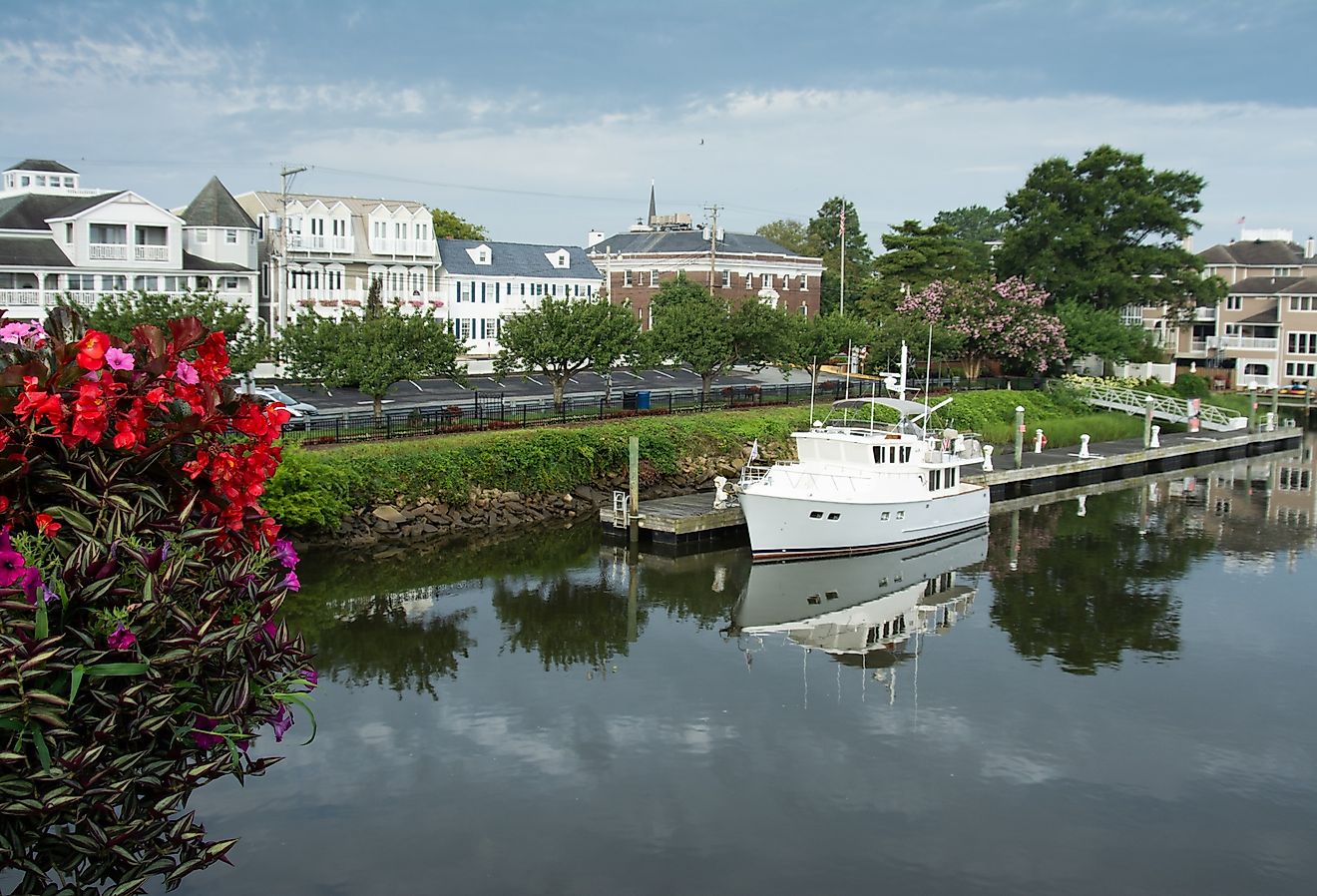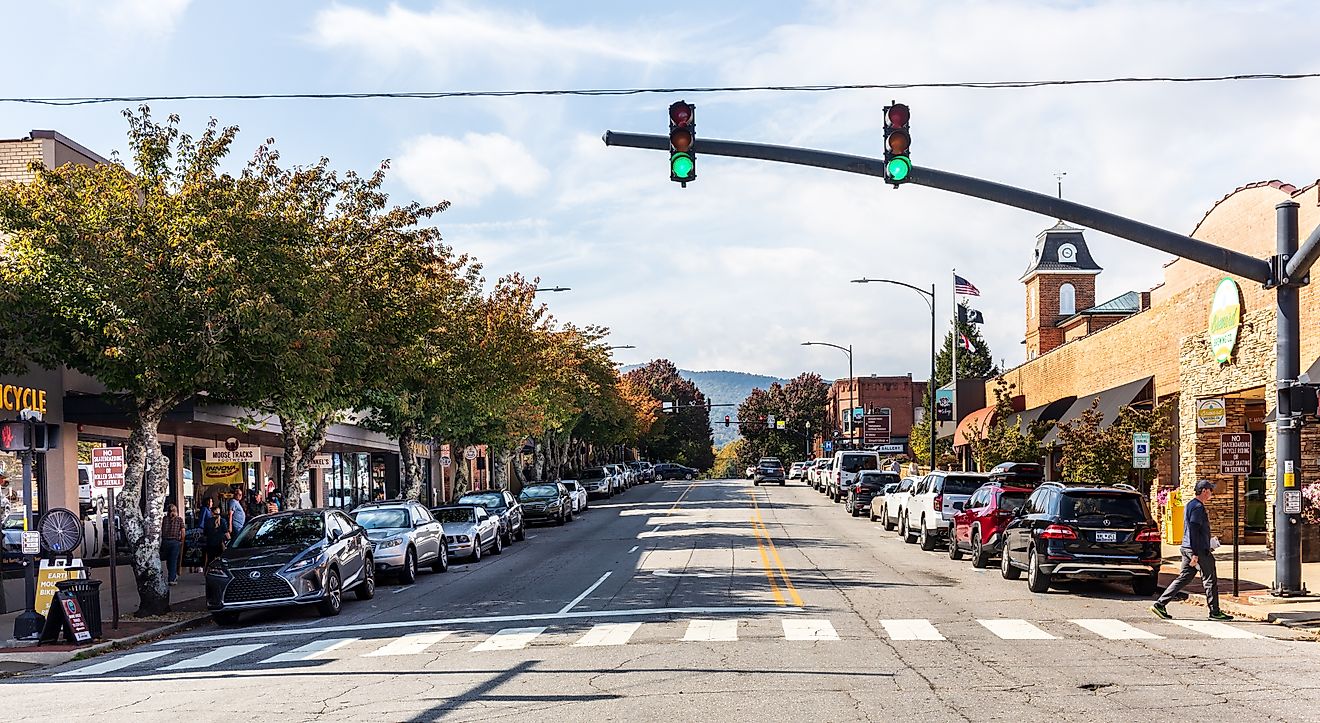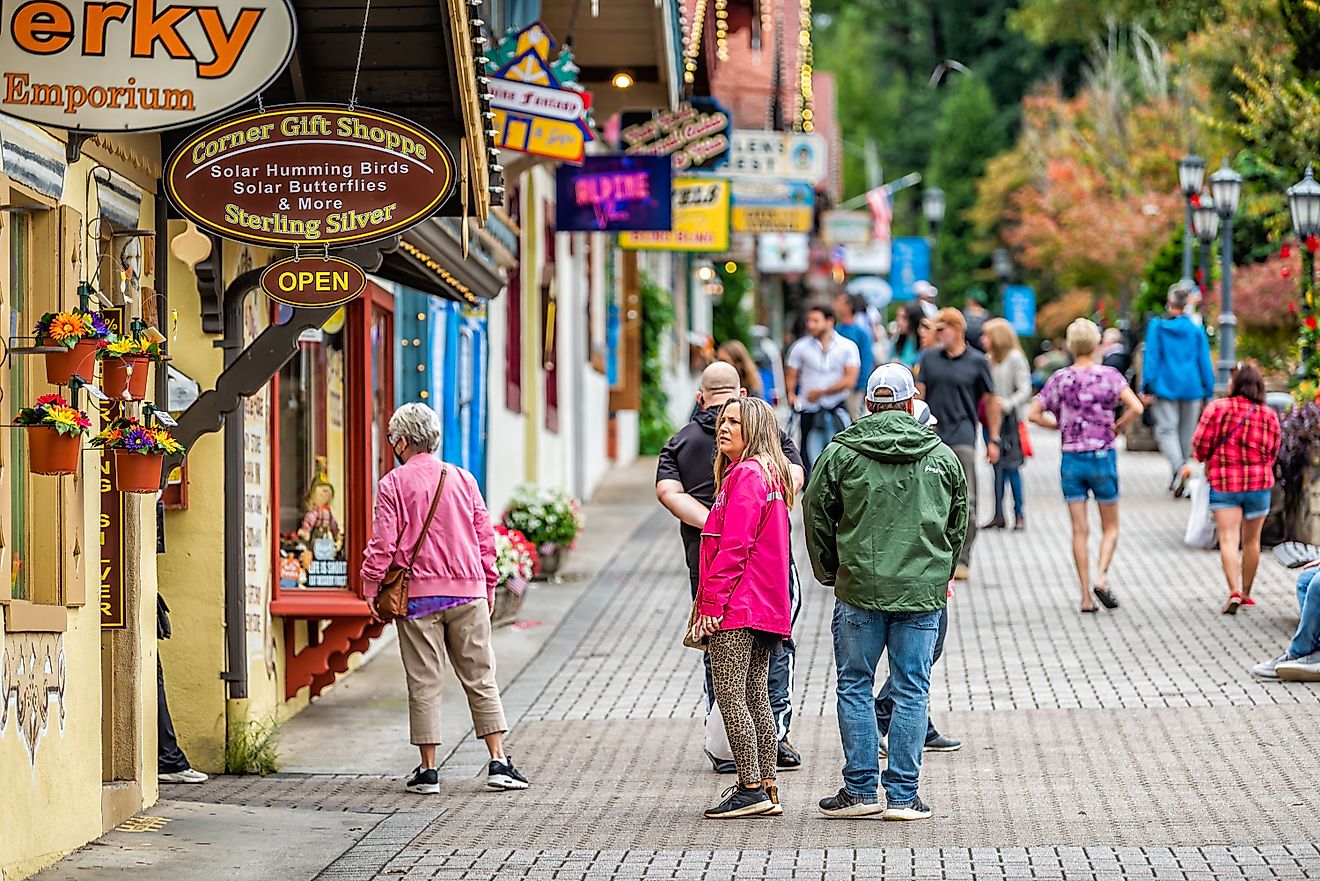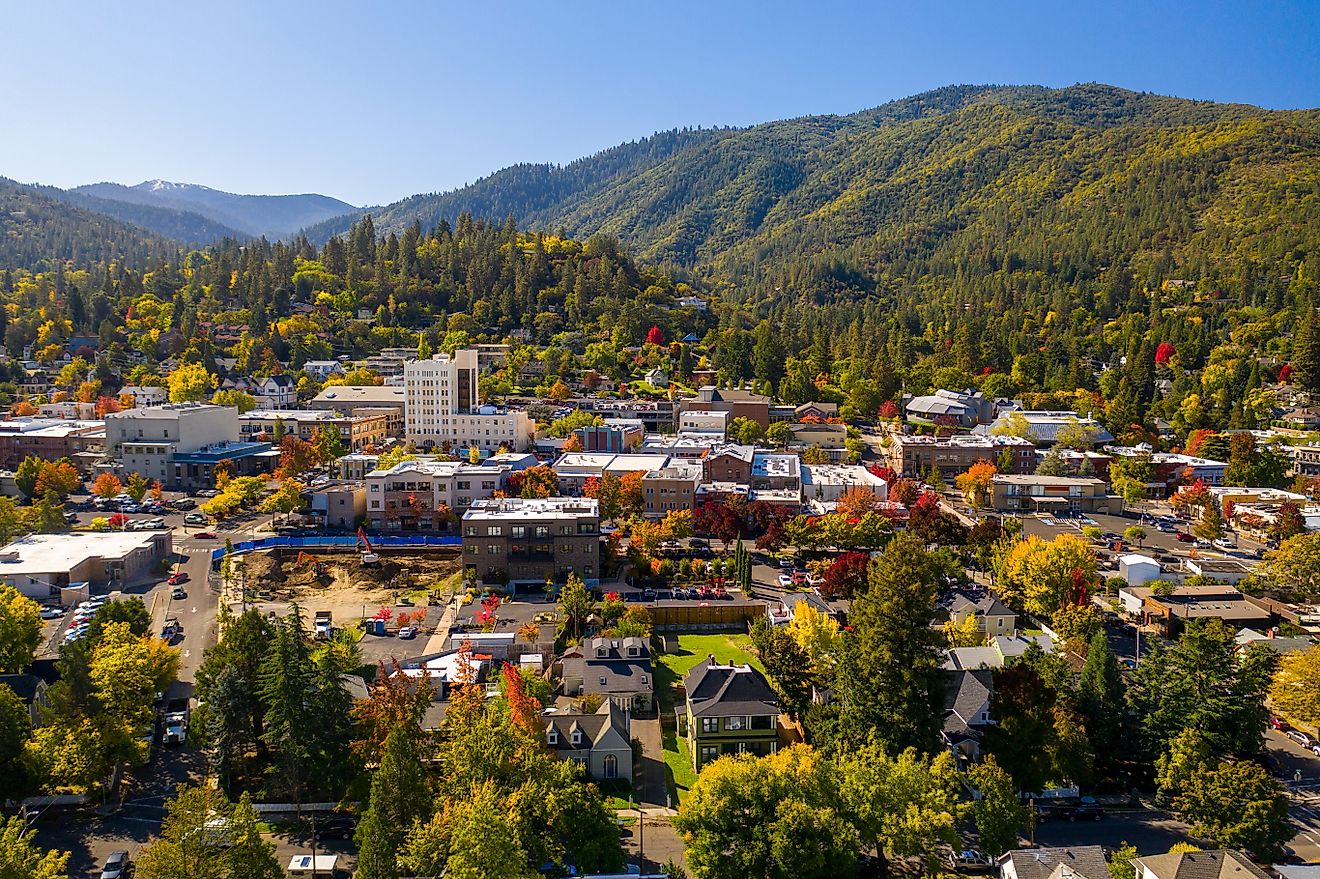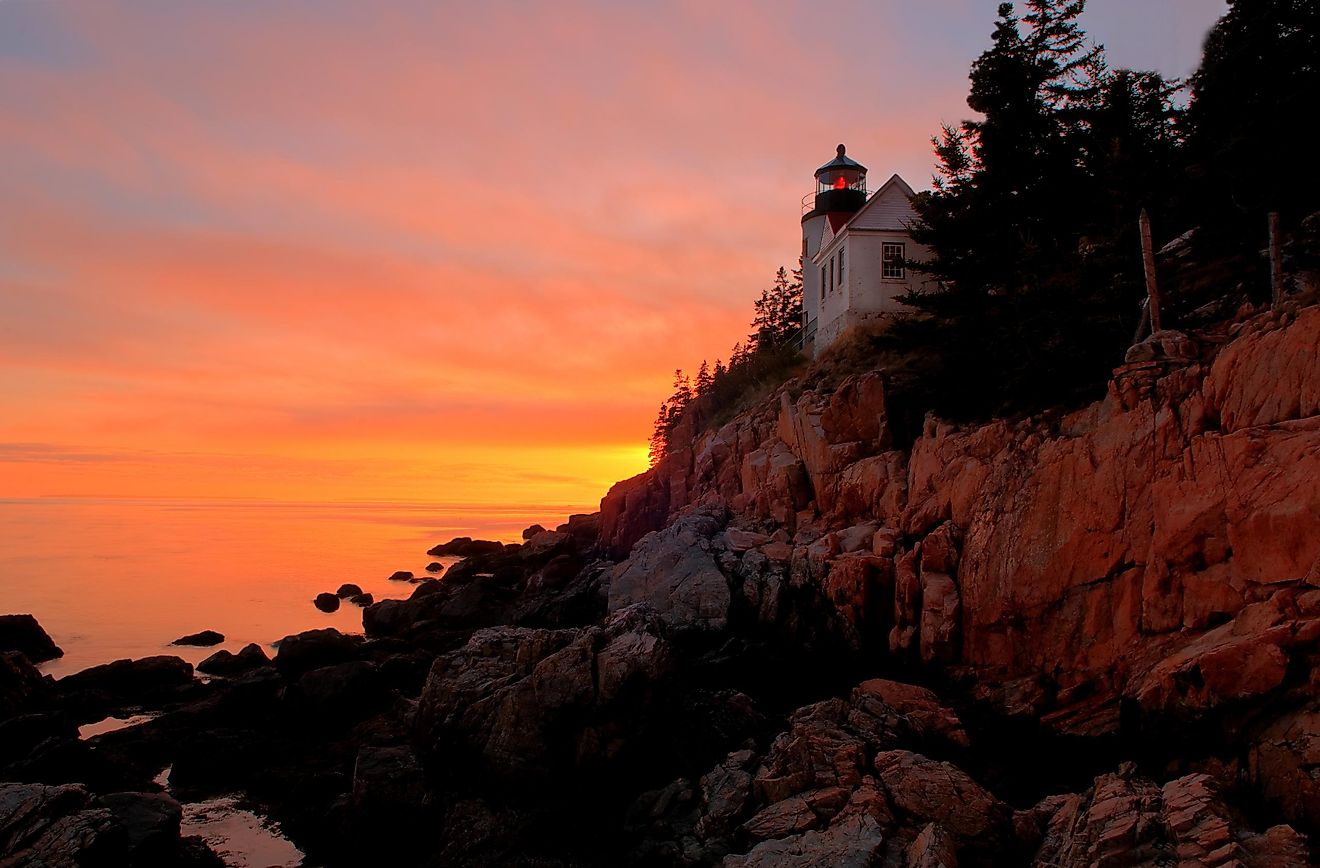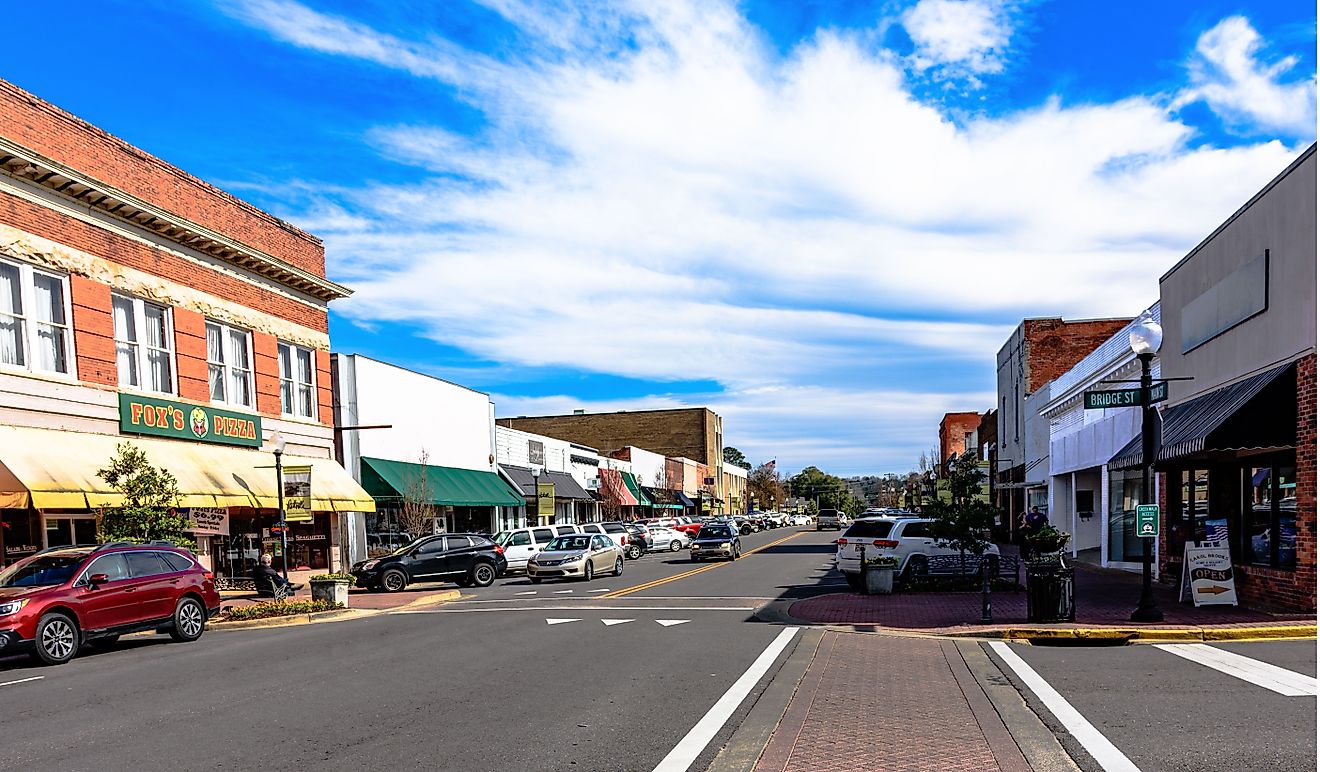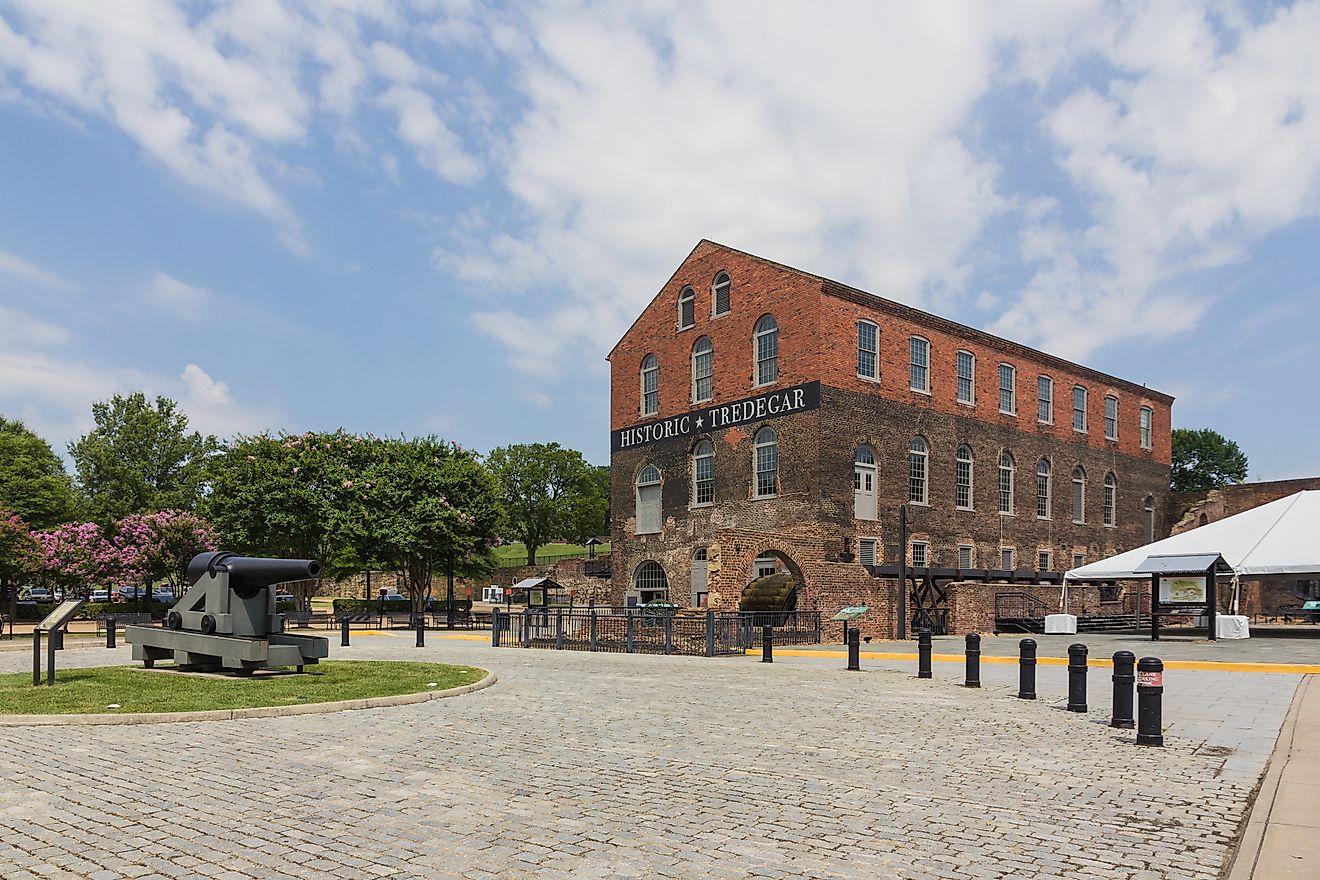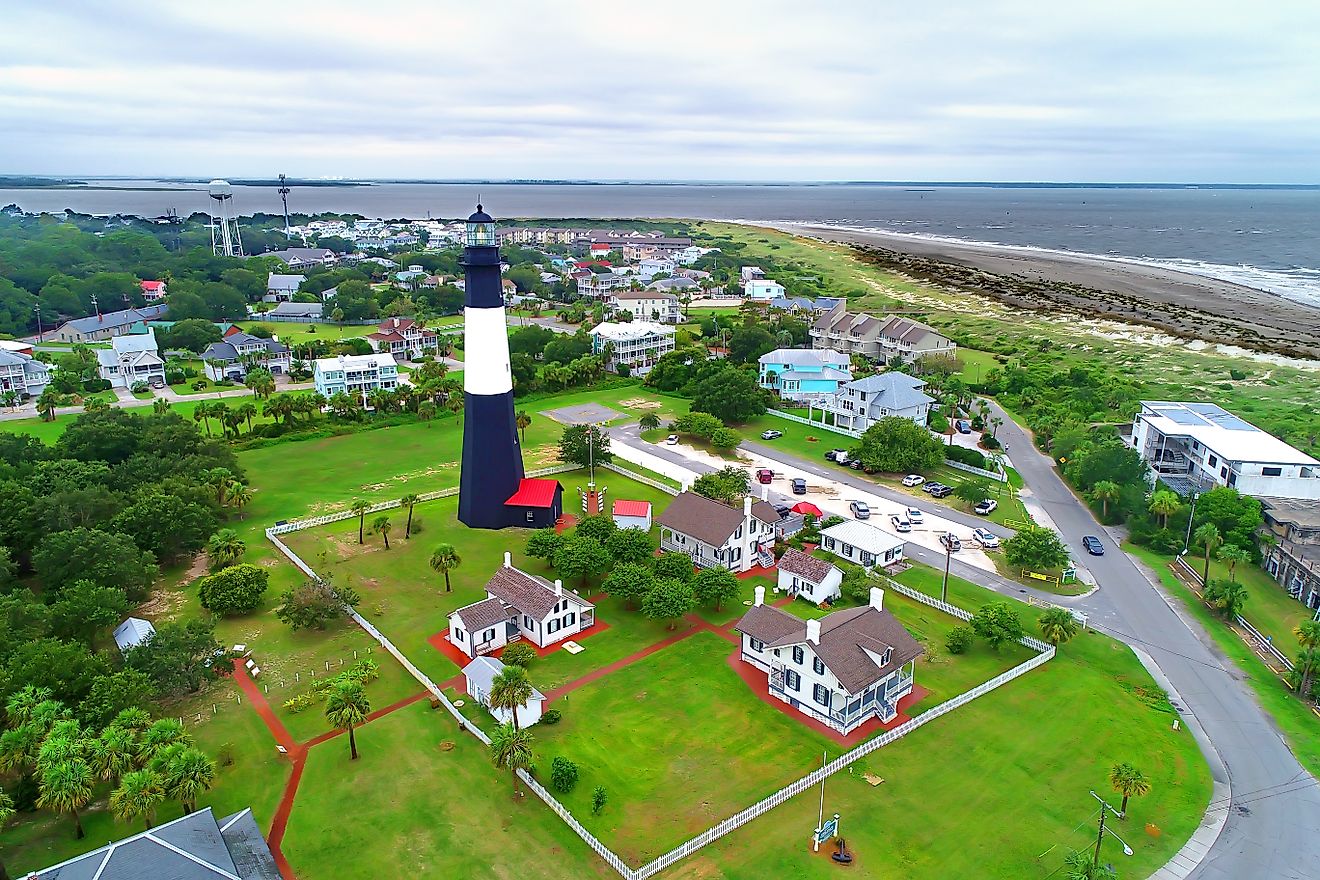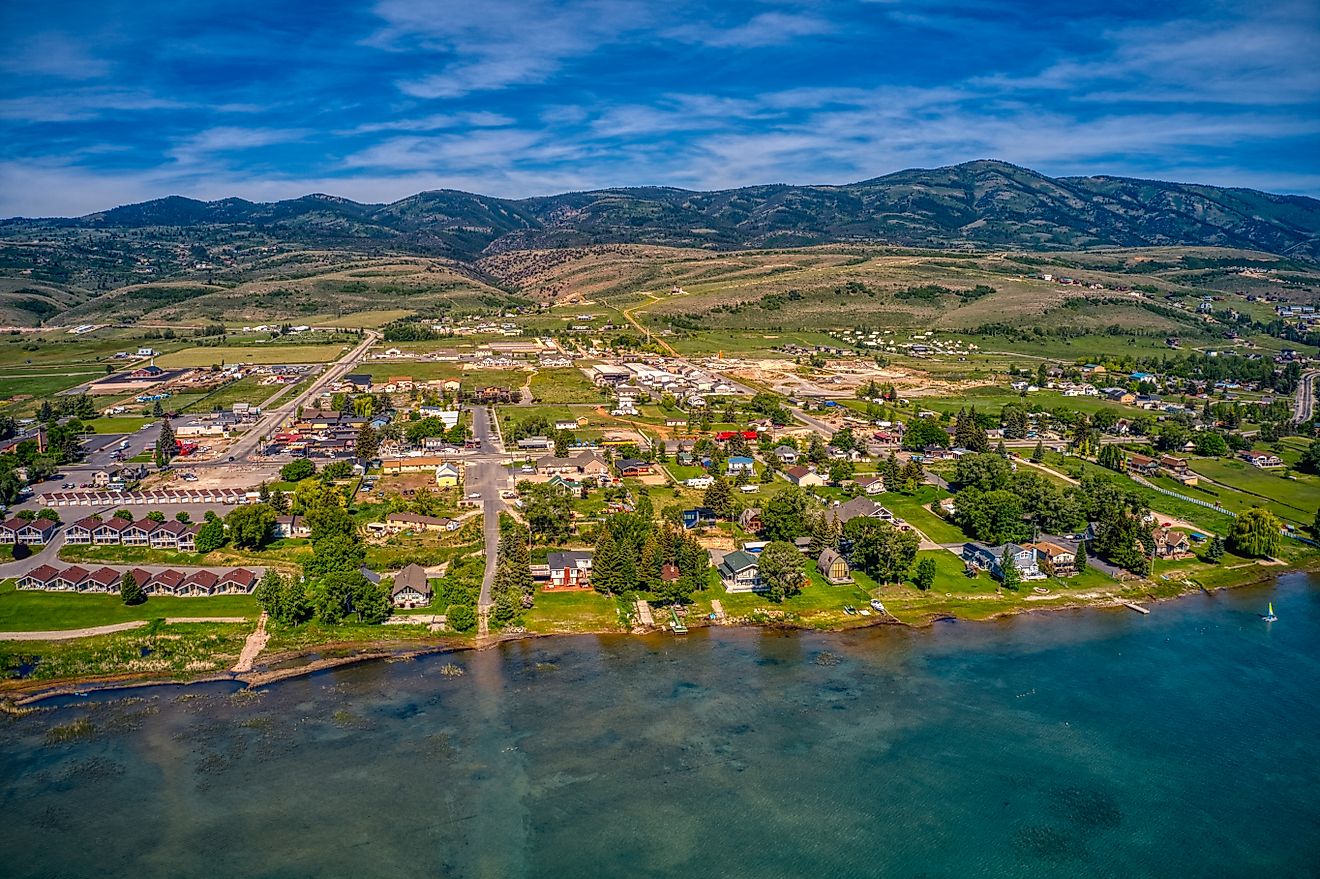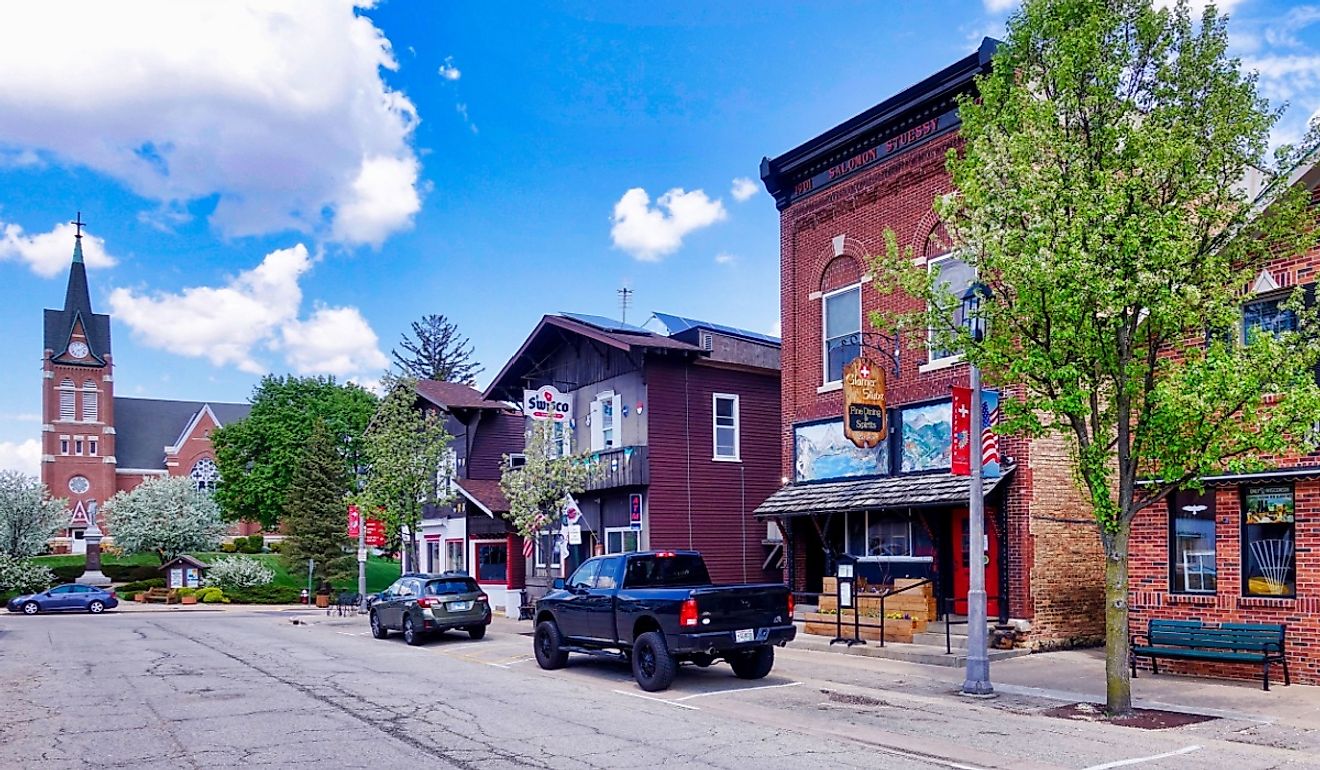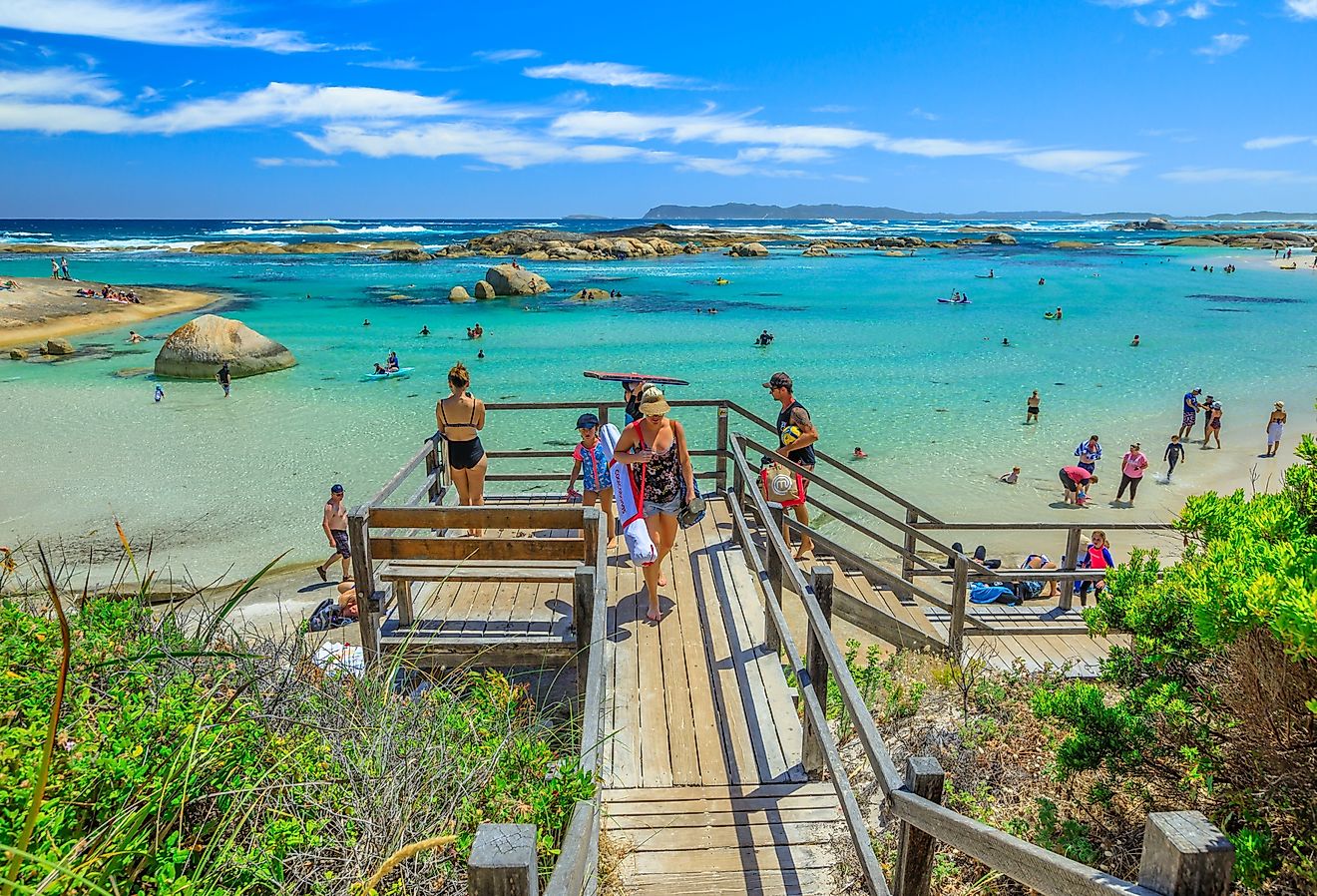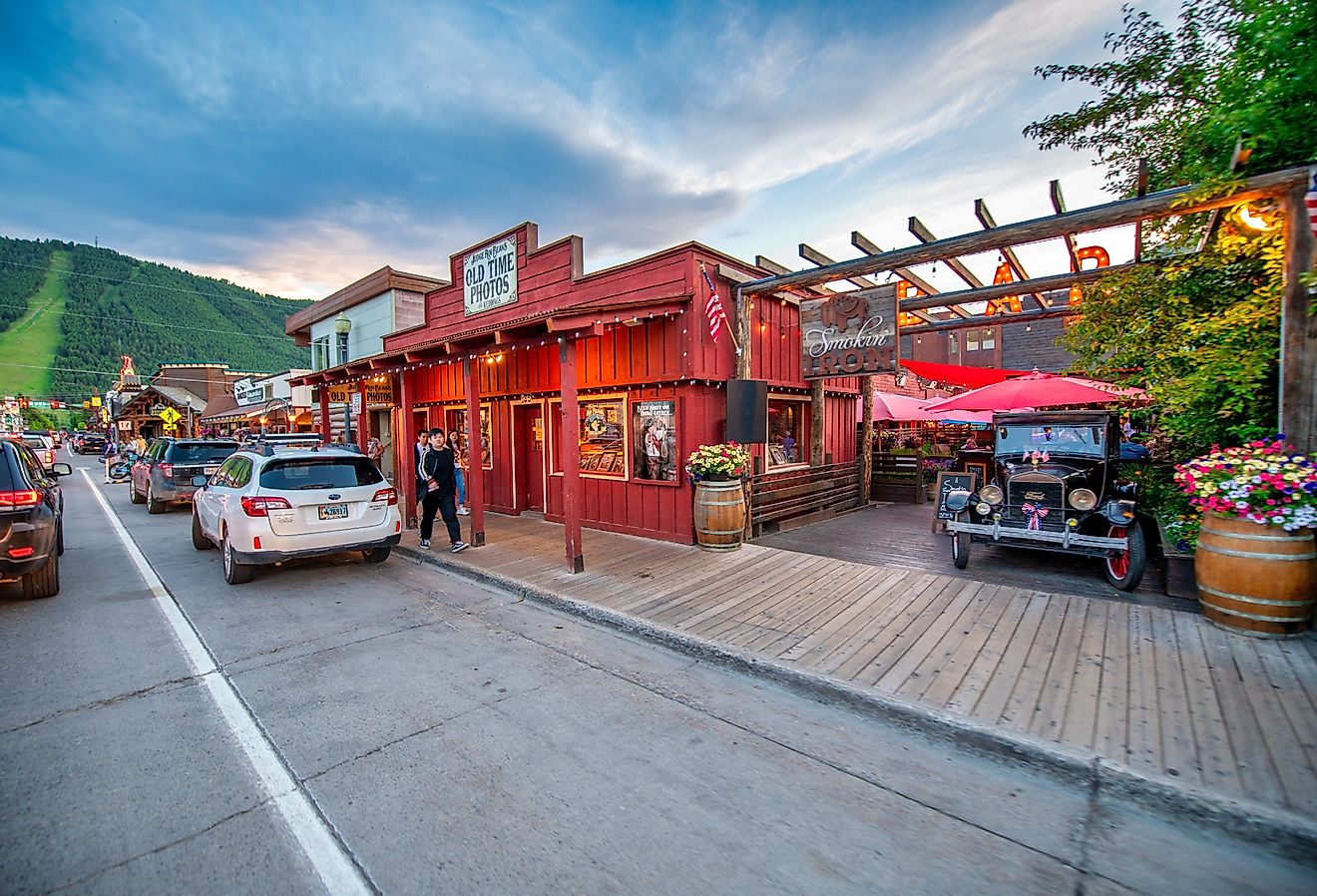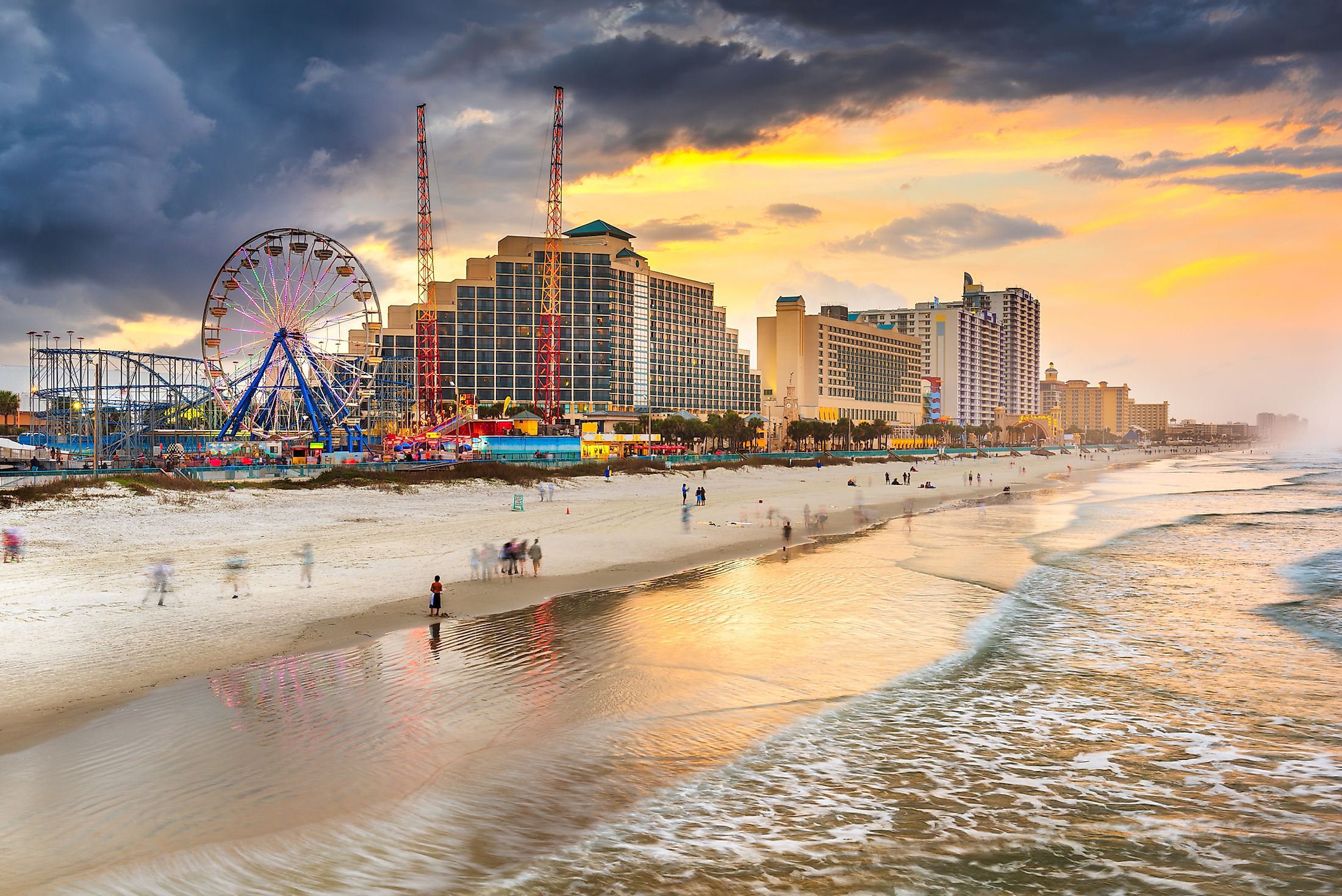
Daytona Beach, Florida
Daytona Beach is a large city situated in Volusia County in the northeastern part of the US State of Florida. Nicknamed as “The Spring Break Capital of the World,” Daytona Beach serves as the main city of Florida’s Fun Coast region as well as of the “Deltona-Daytona Beach-Ormond Beach Metropolitan Area.” Daytona Beach is a famous tourist destination and is well-known for the hard-packed sand beaches that have made it a hub for motorsports. The headquarters of NASCAR - a privately owned American auto racing company is also located in Daytona Beach.
Geography Of Daytona Beach

Daytona Beach covers a total area of 168 sq. km, of which 16 sq. km is occupied by water, and 152 sq. km is occupied by land. The city is situated along the Atlantic Ocean and is divided into two by the Halifax River lagoon. Nicknamed “The World’s Most Famous Beach,” it is located approximately 426.5km northwest of Miami, 82.1km northeast of Orlando, and 138.4km southeast of Jacksonville. Daytona Beach is bordered by the cities of Ormond Beach and Holly Hill in the north and by the cities of Port Orange, Daytona Beach Shores, and South Daytona in the south.
Climate Of Daytona Beach
According to the Köppen climate classification, Daytona Beach experiences a humid subtropical climate with warm, wet summers and cool, dry winters. The hot and humid summer season lasts from late May to the end of October, where August is the warmest month having an average daily high temperature of more than 29.4°C. The cold and dry winter season lasts from November to April, where January is the coldest month having an average daily low temperature of 14.9°C. The Bermuda High-pressure system pumps hot and unstable tropical air from the Bahamas and the Gulf of Mexico, creating daily thundershowers in Daytona Beach from June to September. The city receives an average rainfall of 51.25 inches per year. It is to be noted that Daytona Beach faces a significantly lesser hurricane risk compared to Miami and Key West and a much lower tornado risk than the Midwest and the Great Plains.
The Population And Economy Of Daytona Beach

As per the latest census, Daytona Beach has a population of 67,604 inhabitants with a median age of 40.6. The largest ethnic groups in Daytona Beach include the Non-Hispanic White representing 52.5% of the city’s population, African Americans at 32.7%, Hispanic White at 5.51%, Two and more races at 2.46%, and Asians at 2.4%. About 90.37% of the city’s residents spoke English, while the other residents spoke in various languages like Spanish, French, German, and Arabic.
The median household income in Daytona Beach is $35,893, and the median property value is $153,000. The tourism industry contributes a significant portion of the city’s economy in addition to some manufacturing industries. Several industrial sites are located within the city’s urban enterprise zone. Some of the major companies that have their headquarters in Daytona Beach include NASCAR, Brown & Brown, Inc., Gambro-Renal Products, etc. Some of the most prominent universities in Daytona Beach include Daytona State College, Embry-Riddle Aeronautical University, Bethune Cookman University, and the Daytona Beach campus of the University of Central Florida.
Tourist Attractions In Daytona Beach

Museum of Arts and Science
The Museum of Arts & Sciences is a science, history, and art museum located in Daytona Beach. The Museum houses more than 30,000 objects and is considered one of Central Florida’s most prominent museums. The Museum of Arts & Sciences is affiliated with the Smithsonian Institution and accredited by the American Association of Museums.
Daytona Beach Bandshell

The Daytona Beach Bandshell is an amphitheater situated at Ocean Avenue to the north of the meeting points of Atlantic Avenue and Main Street. This amphitheater was built in 1936 in the Lake Gothic Revival Architectural Style by noted architect Alan J. MacDonough. The Daytona Beach Bandshell was added to the US National Register of Historic Places on March 5, 1999. The American Institute of Architects' Florida Chapter placed the Daytona Beach Bandshell in its list of “Florida Architecture: 100 Years, 100 Places.”
Tarragona Tower
Also referred to as the Tarragona Arch, the Tarragona Tower was constructed using about 4000 cubic yards of the local coquina rock, 1000 bags of cement mixture, and 1,800ft of imported Spanish roofing and flooring tiles. The building was designed by noted architect Elias F. De La Haye, and artist Don J. Emery did its interior artwork. The construction of the Tarragona Arch was completed in 1925 by Charles Ballough, a well-known Volusia County builder.
Halifax Historical Museum
Established in 1984, the Halifax Historical Museum is a large museum housed in the erstwhile Merchants Bank Building at 252 South Beach Street. The Museum houses several artifacts dating from 5,000BC to the present time. On January 6, 1986, the Museum was added to the US National Register of Historic Places.
Brief History

The native Timucuan Indians initially inhabited the present-day Daytona Beach area. These native people were eliminated through war, disease, and slavery after coming in close contact with the Europeans. The area was also frequently visited by the Seminole Indians before the Second Seminole War. Between 1763 to 1783, when Florida was ruled by the British, the King’s Road extended from Saint Augustine to an experimental colony in New Smyrna Beach. After the American Revolutionary War, Spain recovered Florida from the British, and the Spanish Crown granted a land grant of 12 sq. km to Samuel Williams in 1804. In due course, several slave-labor-based plantations were established in the area. A resident of Mansfield, Ohio, named Mathias Day Jr., bought about 3,200 acres of the Orange Grove Plantation, located on the western shores of the Halifax River. A hotel was built by Day in 1874, and the area rapidly developed as a well-known winter vacation spot. However, due to financial problems, Mathias Day Jr. lost ownership of his land, and the residents thus decided to name the area “Daytona” in his honor. In 1926, the individual towns of Daytona, Kingston, Daytona Beach, and Seabreeze were merged as “Daytona Beach.” The Daytona International Speedway, created in 1958 by NASCAR, replaced the old beach courses.
